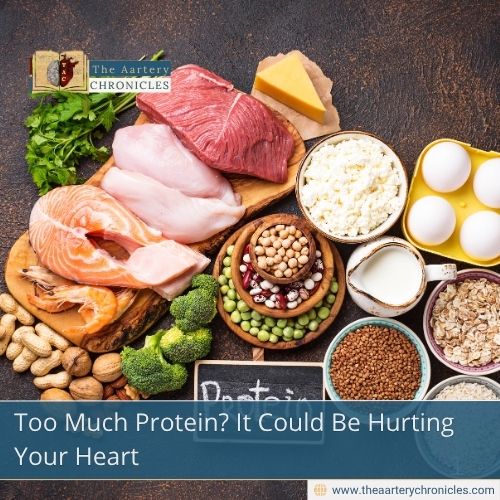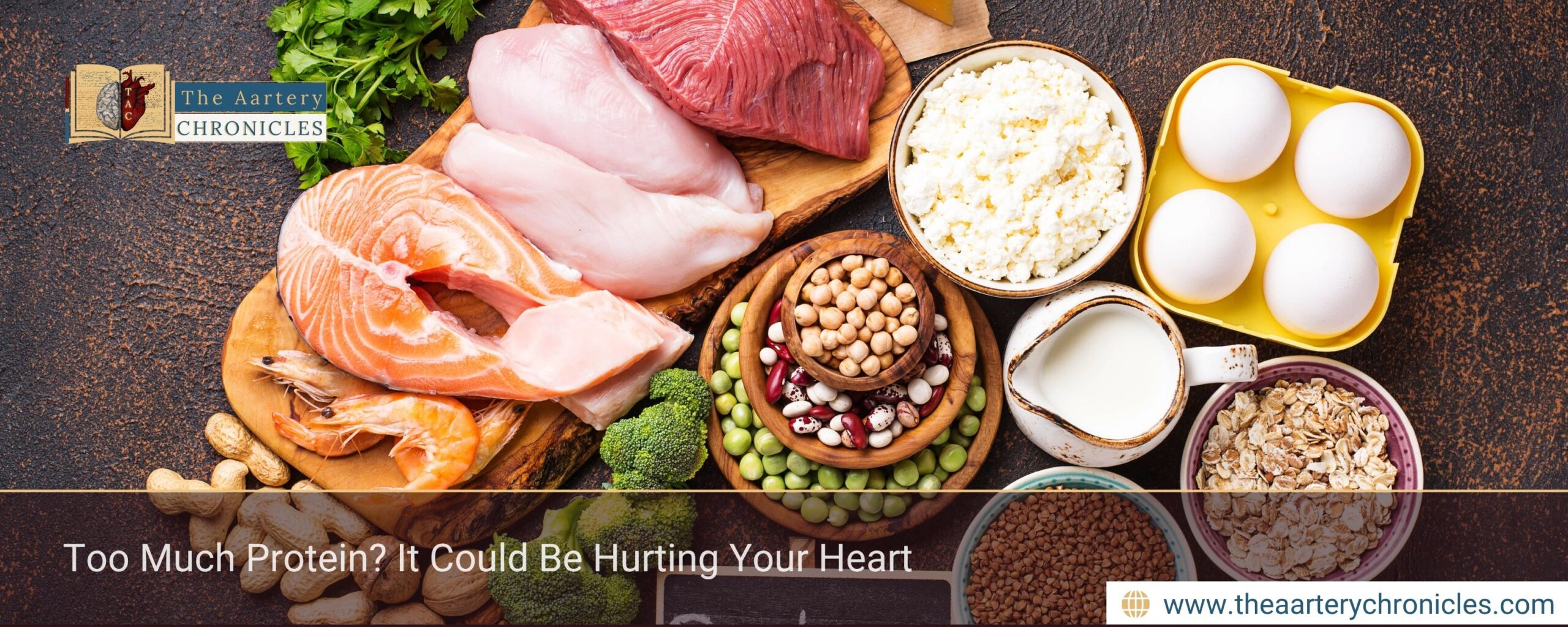

Too Much Protein? It Could Be Hurting Your Heart
Protein is often praised as the building block of muscles and a must-have nutrient for fitness enthusiasts. It helps in repairing tissues, supporting strength, and even managing weight. However, too much of a good thing can become harmful, especially when it comes to your heart. In fact, how excess protein can harm your heart is now a growing concern among cardiologists.
Recently, Dr Dmitry Yaranov, MD Cardiologist, shared a strong warning on Instagram about the dangers of long-term, high-protein diets.
In his video titled “This is how a high-protein diet can lead to a heart attack at 35,” he revealed how extreme protein consumption, particularly from carnivore-style diets, can silently damage the heart.
When Fitness Turns Dangerous
Some individuals may appear “shredded,” muscular, and in peak physical condition on the outside, yet their blood vessels tell a different story.
While a high-protein diet can help you achieve a sculpted physique, years of extreme protein intake can trigger serious cardiovascular issues. According to Dr Yaranov, people following carnivore or very high-protein diets for years may develop:
- Sky-high LDL cholesterol (the “bad” cholesterol that clogs arteries)
- Endothelial dysfunction (damage to the inner lining of blood vessels)
- Chronic inflammation
- Premature atherosclerosis (early hardening and narrowing of arteries)
All these factors greatly increase the risk of a heart attack or other heart diseases, even in young, athletic individuals.
Athletic Does Not Always Mean Healthy
Having a muscular body or low body fat doesn’t guarantee heart health. A six-pack doesn’t protect you from a plaque rupture. If your diet destroys your endothelium, it doesn’t matter how strong your biceps are.”
He added that he has treated fit 35-year-olds who suffered sudden heart attacks without any prior symptoms or warning signs. These cases, he explained, are often the result of silent, long-term damage caused by dietary extremes.
The Heart Needs Balance, Not Extremes
To truly protect your heart, Dr Yaranov advises balance over extremes. Rather than relying solely on high-protein or meat-based diets, he recommends eating whole foods with plenty of plant-based options and getting regular blood work to monitor cholesterol and inflammation levels.
As he put it, “If you want to be healthy, it’s not about being extreme, it’s about being balanced.”
Conclusion
While protein is vital for muscle growth and recovery, excess protein can harm your heart over time. A diet overloaded with animal protein may raise bad cholesterol, damage blood vessels, and accelerate plaque buildup, leading to potential heart attacks, even in young, athletic people.
Finding the right balance, combining plant-based foods, and monitoring your cardiovascular health are essential steps for anyone serious about both fitness and longevity.
Source: Inputs from various media Sources
I’m a pharmacist with a strong background in health sciences. I hold a BSc from Delhi University and a pharmacy degree from PDM University. I write articles and daily health news while interviewing doctors to bring you the latest insights. In my free time, you’ll find me at the gym or lost in a sci-fi novel.
- Priya Bairagi
- Health News and Updates,People Forum
- 27 October 2025
- 13:00








